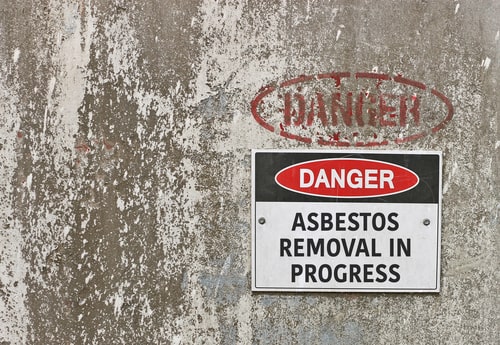Mesothelioma is a deadly form of cancer caused by asbestos exposure. Due to mesothelioma’s long latency period, it can be difficult to detect the disease in its early stages. Mesothelioma symptoms are generally not evident until decades after asbestos exposure occurred. Many people who had contact with asbestos in the 1980s and earlier are only now learning that they have mesothelioma or asbestos-related lung cancer.
The Cincinnati mesothelioma lawyers at Young, Reverman & Mazzei are dedicated to helping asbestos exposure victims and their families recover the financial peace of mind they need to cope with medical costs and other damages. If you or a loved one has been diagnosed with mesothelioma, please call us today at 800-721-1678 for a free consultation or contact us online to get started now. Our attorneys work with asbestos exposure victims from Ohio, Kentucky, and Indiana.
[toc]
Types of Mesothelioma
The term mesothelioma applies to a group of related cancers caused by asbestos exposure. Mesothelioma gets its name from the mesothelium, a layer of tissue that covers or lines the interior of most internal organs. There are four known types of mesothelioma, whose names are based on where the disease originates:
Pleural mesothelioma
The most common form of mesothelioma, pleural mesothelioma develops in the pleura, which are the layers of mesothelium that surround the lungs.
Peritoneal mesothelioma
Peritoneal mesothelioma is responsible for approximately 10 percent of all mesothelioma cases and develops in the mesothelium that lines the abdominal cavity.
Pericardial mesothelioma
Pericardial mesothelioma forms in the mesothelium tissue around the heart and accounts for about 1 percent of mesothelioma cases.
Testicular mesothelioma
The rarest type of mesothelioma, testicular mesothelioma occurs in the tunica vaginalis, the mesothelium-lined pouch that contains the testes.
Some mesothelioma symptoms are common in each form of the disease. But other signs and symptoms vary widely depending on the specific type of mesothelioma present.
General Mesothelioma Symptoms
General symptoms of mesothelioma are often nonspecific and may include:
- Persistent cough
- Shortness of breath
- Recurring fatigue
- Frequent fevers
- Night sweats
- Unexplained weight loss
Because these symptoms are shared by so many other common health concerns, mesothelioma is problematic to detect in its early stages. As the cancer spreads, more specific localized signs and symptoms of mesothelioma become noticeable. The following are additional indicators associated with the four types of mesothelioma.
Pleural Mesothelioma Symptoms
Pleural mesothelioma comprises more than 75 percent of all mesothelioma cases and is caused primarily by asbestos fibers that have been inhaled and became lodged in the lungs. One major indicator of pleural mesothelioma is chest pain as fluid builds up between the layers of pleura, which puts pressure on the lungs and leads to impaired breathing. Other common pleural mesothelioma symptoms include:
- Painful, recurring cough
- Labored breathing
- Trouble swallowing
- Lumps under the chest skin
- Swelling in the face and arms
Peritoneal Mesothelioma Symptoms
Peritoneal mesothelioma is the second-most-common form of the cancer. Peritoneal mesothelioma often leads to tumors that put pressure on adjacent organs and cause abdominal pain. Other symptoms of peritoneal mesothelioma include:
- Abdominal swelling
- Nausea and/or vomiting
- Recurring constipation or diarrhea
- Lumps under the skin around the abdomen
Pericardial Mesothelioma Symptoms
Pericardial mesothelioma is rare, but it is also one of the most difficult types of mesothelioma to detect because its symptoms are similar to those of other heart disorders. One of the hallmark symptoms of pericardial mesothelioma is chronic chest discomfort caused by a buildup of fluid and thickening of tissue in the chest cavity around the heart. Other indicators of pericardial mesothelioma include:
- Difficulty breathing
- Onset of heart palpitations or irregular heartbeat
- Chest pain similar in sensation to a heart attack
- Recurring cough
- Persistent nausea
Testicular Mesothelioma Symptoms
The least common form of mesothelioma is testicular. Among the most common signs of testicular mesothelioma is a hydrocele, which is a buildup of fluid in the scrotum. Other symptoms associated with testicular mesothelioma include:
- Pain in the groin or testes
- Swelling of the scrotum
- Lump or swelling on the testicles
When to Contact a Doctor
If you know you were exposed to asbestos through your employment or military service, it’s a good idea to inform your doctor regardless of whether you’re currently experiencing any symptoms associated with mesothelioma. You should also discuss any signs and symptoms that concern you with your doctor.
As noted above, most mesothelioma symptoms are not specific to the disease alone and may be shared with other health problems. If you believe you may have been exposed to asbestos directly or through second-hand contact, you should also mention this to your physician. Although there is no known cure for mesothelioma, there are a number of treatment options available to extend lifespan and improve quality of life.
Contact a Dedicated Mesothelioma Attorney
A mesothelioma diagnosis can be scary, financially overwhelming, and leave you with questions about where to turn for help.
The Cincinnati asbestos exposure attorneys at Young, Reverman & Mazzei understand the physical, emotional and financial challenges associated with mesothelioma. We also know how to recover the financial compensation mesothelioma victims and their families need to cope with this debilitating disease. If you or a loved one lives in Ohio, Kentucky or Indiana and suffers from mesothelioma, please call us today at 800-721-1678 to arrange your free, no-obligation consultation. You can also contact us online to tell us your story now. For a complete list of our offices and directions, please see our locations page.




